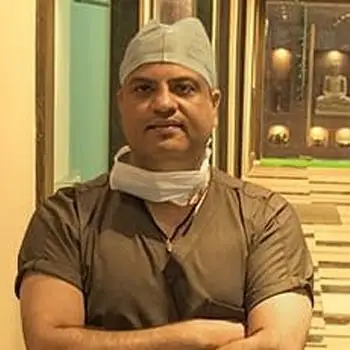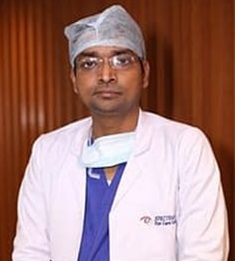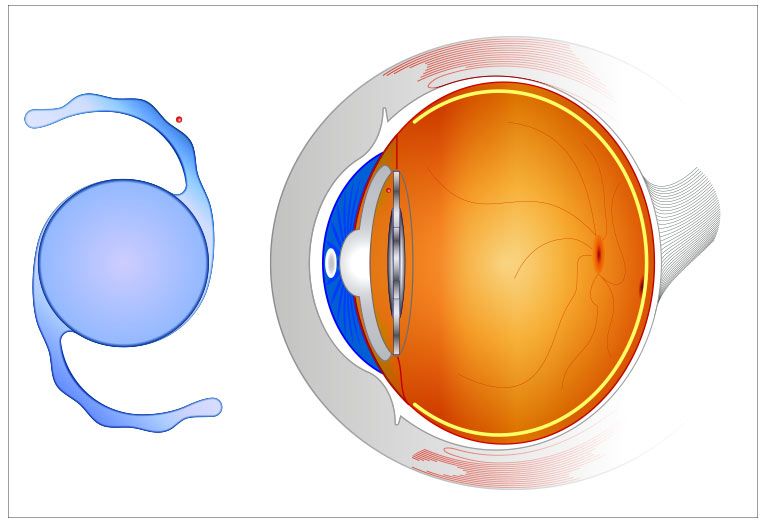CATARACT MICS with Non Aspheric Monofocal PCIOL Single Eye
India
-
Our Price USD 732
-
Hospital Price USD 770
-
You Save : USD 39
Booking Amount: USD 73. Pay Remaining 90% at the hospital.
Book NowAdditional Credit
Among the important extras we offer as part of the Additional Credit are the following:
-
Site Tourism For The Patient & Attendant
-
Airport Pick & Drop Service
-
Ambulance service at airport
-
Priority appointments with The Doctor
-
Cancel Easily Anytime with Full Refund
-
Room Upgradation
-
Free Online Doctor Consultation Valued at USD 20
-
Free hotel Stay for 5 to 7 days Accordingly
-
Welcome Kit at Arrival
-
Interpreter
-
Medical Visa Assistance
What is Included?
- Doctor consultation charges
- Lab tests and diagnostic charges
- Room charges inside hospital during the procedure
- Surgeon Fee
- Cost of implant
- Nursing charges
- Hospital surgery suite charges
- Anesthesia charges
- Routine medicines and routine consumables (bandages, dressings etc.)
- Food and Beverages inside hospital stay for patient and one attendant.
What is not Included?
- Extra Radiology Investigations
- Healthcare Professionals Charges of other consultations.
- Other Requested Services such as Laundry etc.
- Additional Pharmaceutical Products and Medicines After Discharge from Hospital.
- Management of Conditions Unrelated to Procedures or Pre-Existing.
- The cost of any additional implants will be in addition to the package cost.
Package Description
CATARACT MICS with Non Aspheric Monofocal PCIOL
The hazy lens within your eye is removed and replaced with an artificial lens (called an intraocular lens, or IOL) during cataract surgery to restore clear vision. The surgery is usually done as an outpatient operation, which means you won't have to remain in a hospital or other care facility overnight.
Microincision cataract surgery (MICS) is a type of cataract surgery that uses a small incision (less than 1.8 mm) to reduce surgical invasiveness while also enhancing surgical results.
Monofocal lenses that compensate for spherical aberration are known as aspheric IOLs. The end result is a lens that, especially at night, will give superior overall vision than regular IOLs. Patients who choose an aspheric IOL can expect the following benefits: Sensitivity to contrast has been improved. Functional eyesight has been improved.
PCIOLs are anchored into the ciliary sulcus or the capsular bag. Through a very small incision formed during phacoemulsification, the lens may be folded and put into the eye.
To assess intraocular pressure (IOP) management in patients with capsular glaucoma (CG) and concomitant cataract after extracapsular cataract extraction (ECCE) with posterior chamber intraocular lens (PCIOL) implantation.
Disease Overview:
Spherical aberration
When the peripheral components of a lens do not bring light rays into the same focus as the centre section, spherical aberration occurs. When a result, images created by the lens at large apertures are unsharp, but sharpen as the aperture is reduced.
Disease Signs and Symptoms:
Spherical aberration is an optical problem of laser vision correction that causes glare, starburst, and halos as visual symptoms. They can be reduced by selecting the right patients (avoiding patients who have large pupils and require high myopic corrections).
Disease Causes:
Spherical aberration occurs when a lens or mirror's curvature causes rays falling on the outer edges to focus at a different location than those falling in the centre. As a result, the photos created seem hazy.
Disease Diagnosis:
Wavefront technology (aberrometry) and an apparatus called an aberrometer may be used to evaluate and diagnose aberrations. Aberrometry is a technique for determining how light flows through the eye's crystalline lens and cornea, which concentrate light.
Disease Treatment:
Using an excimer laser to retain or augment the natural cornea's prolate shape, or modified prolate IOLs, both phakic and aphakic, surgeons can minimise spherical aberration.
Information related to Treatment
Package Details
Days in Hospital
1 Days
Days in Hotel
*
5 Days
Room Type
Private

Treating Doctor
Dr. Suraj Munjal
Ophthalmologist- Retina Surgeon, Cataract Surgeon, Lasik surgeon, Vitreo Retina Surgeon, Eyelid Surgery, Trabeculectomy, Vitreoretinal Surgery, Orbital & Oculoplastic surgery, Refractive surgery, Retina Examination, Glaucoma Evaluation / Treatment, Canaloplasty, Corneal Surgery, Eye Muscle Surgery, Orbital Surgery, Anterior Segment Surgery, Orbital Decompression Surgery for Thyroid Eye Disease, Orbital Trauma, Diabetic Retinopahy, YAG laser Posterior Capsulotomy, Anterior Retinal Cryotherapy, Retinal Surgery, Lens for Keratoconus
The Sight Avenue Eye Hospital Delhi, India
19 Years of Experience

Treating Doctor
Dr. Md. Ali Mosharraf
Ophthalmologist- Cataract Surgeon, Lasik surgeon, Glaucoma Specialist, Ocular Oncology, Cataract treatment, Eye Checkup - General, Phakic OIL Implantation, Cornea Transplant, Treatment for Keratoconus
The Sight Avenue Eye Hospital Delhi, India
19 Years of Experience


